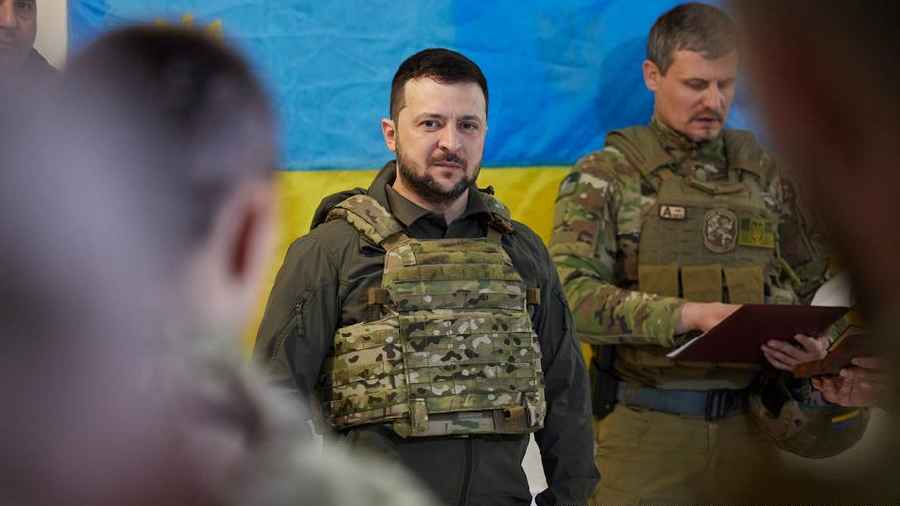US intelligence believes the forthcoming Ukrainian counteroffensive could fall “well short” of Kyiv’s goals, according to a purported leaked top secret document.
The assessment was part of a major leak of classified US material relating to Ukraine and other allies that has shaken Washington. Ukraine is expected to launch an attack on invading Russian troops in the spring, in its first major military push of the year.
But the document suggested the US had serious concerns over the viability of the counter-offensive.
It suggested that there would be “force generation and sustainment shortfalls”, and the Ukrainian operation would result in only “modest territorial gains”.
The document, first reported on by the Washington Post, suggested Ukrainian training deficiencies combined with a lack of weapons would limit its advances and lead to more casualties. It said that “enduring Ukrainian deficiencies in training and munitions supplies probably will strain progress and exacerbate casualties during the offensive”.
The document, which was compiled in early February, was part of a series of leaks that have led to a criminal investigation by the US justice department. Pentagon officials warned that the leaks posed a “very serious” risk to US national security. US officials have also warned some documents appeared to have been “doctored”. On Tuesday, Britain’s ministry of defence also issued a warningthat some were highly inaccurate.
An MoD spokesman said: “The widely reported leak of alleged classified US information has demonstrated a serious level of inaccuracy. Readers should be cautious about taking at face value allegations that have the potential to spread disinformation.”
Dozens of photographs of documents have been found on social media platforms Twitter and Telegram, and other websites, in recent days. Some of them have been circulating online for weeks and possibly months.
They may have originated in a chatroom on Discord, a social media platform popular with gamers.
The platform hosts real-time voice, video and text chats. A member of the website told the Associated Press that, starting a few months ago, an unidentified poster began sharing documents that were allegedly classified.
The Daily Telegraph, London










